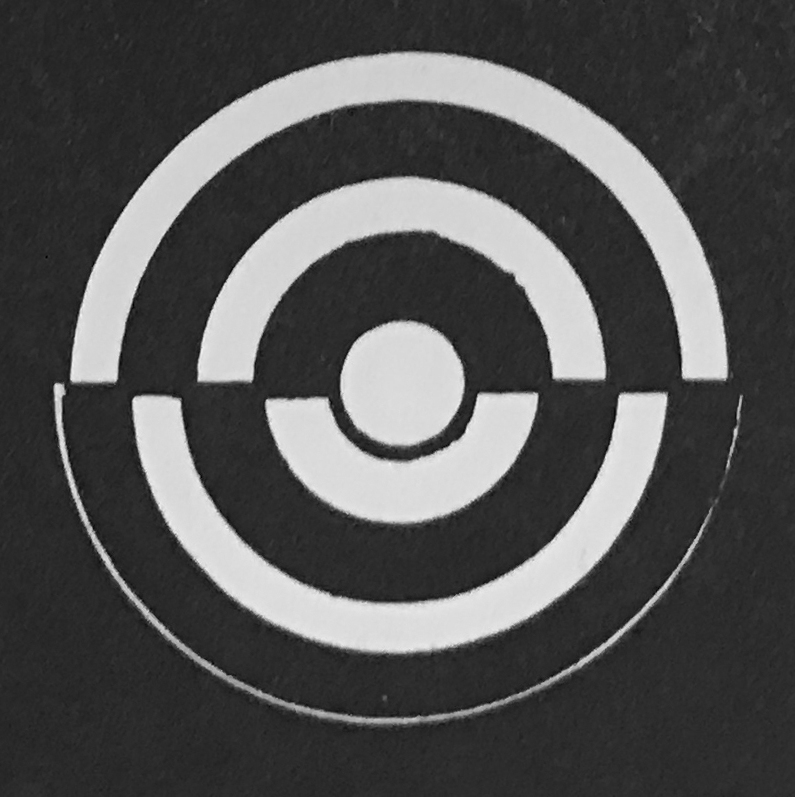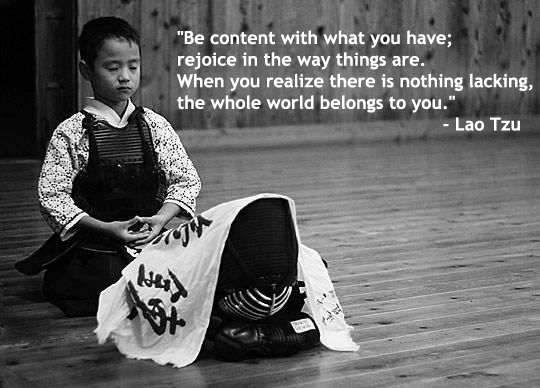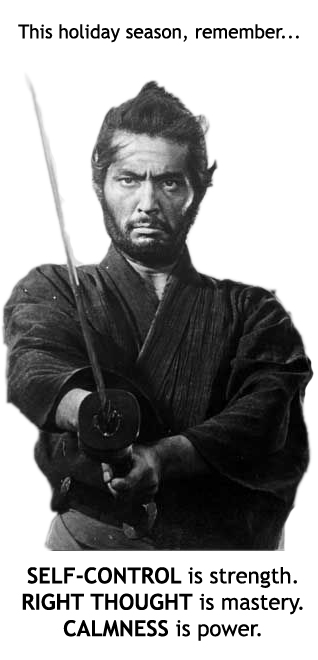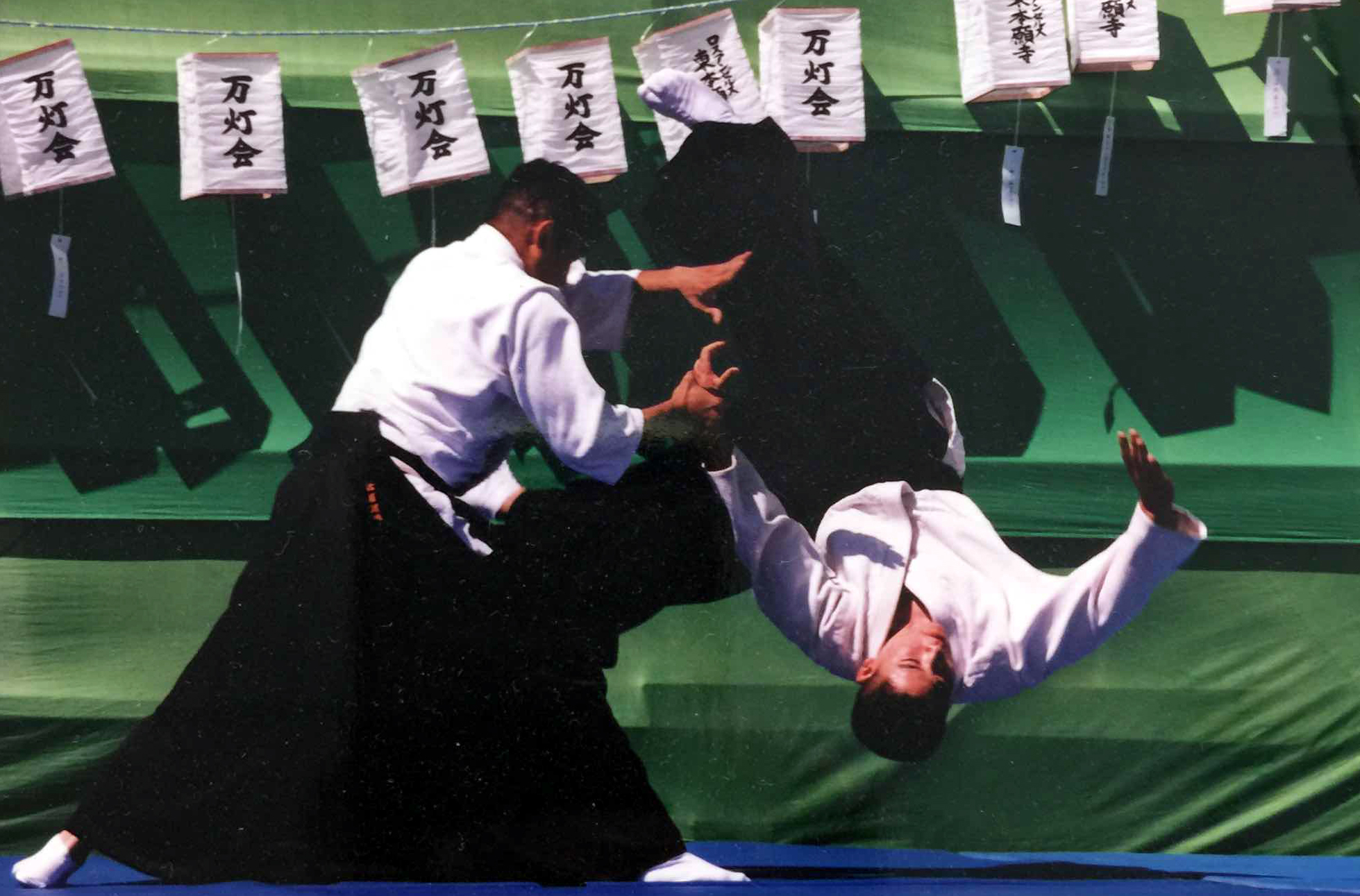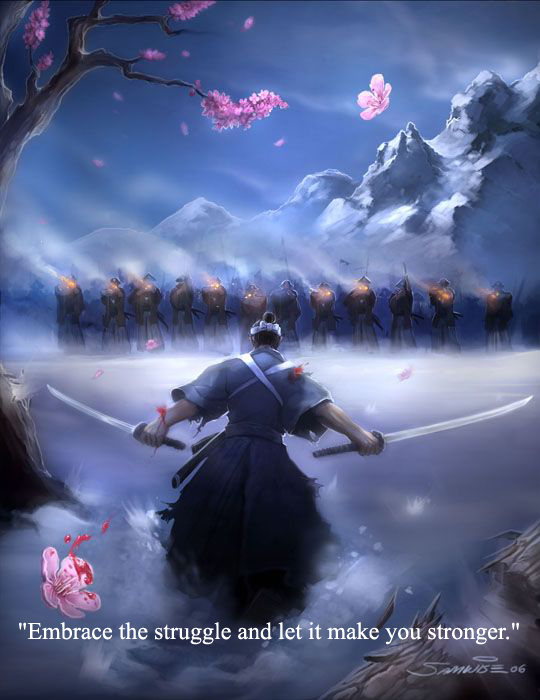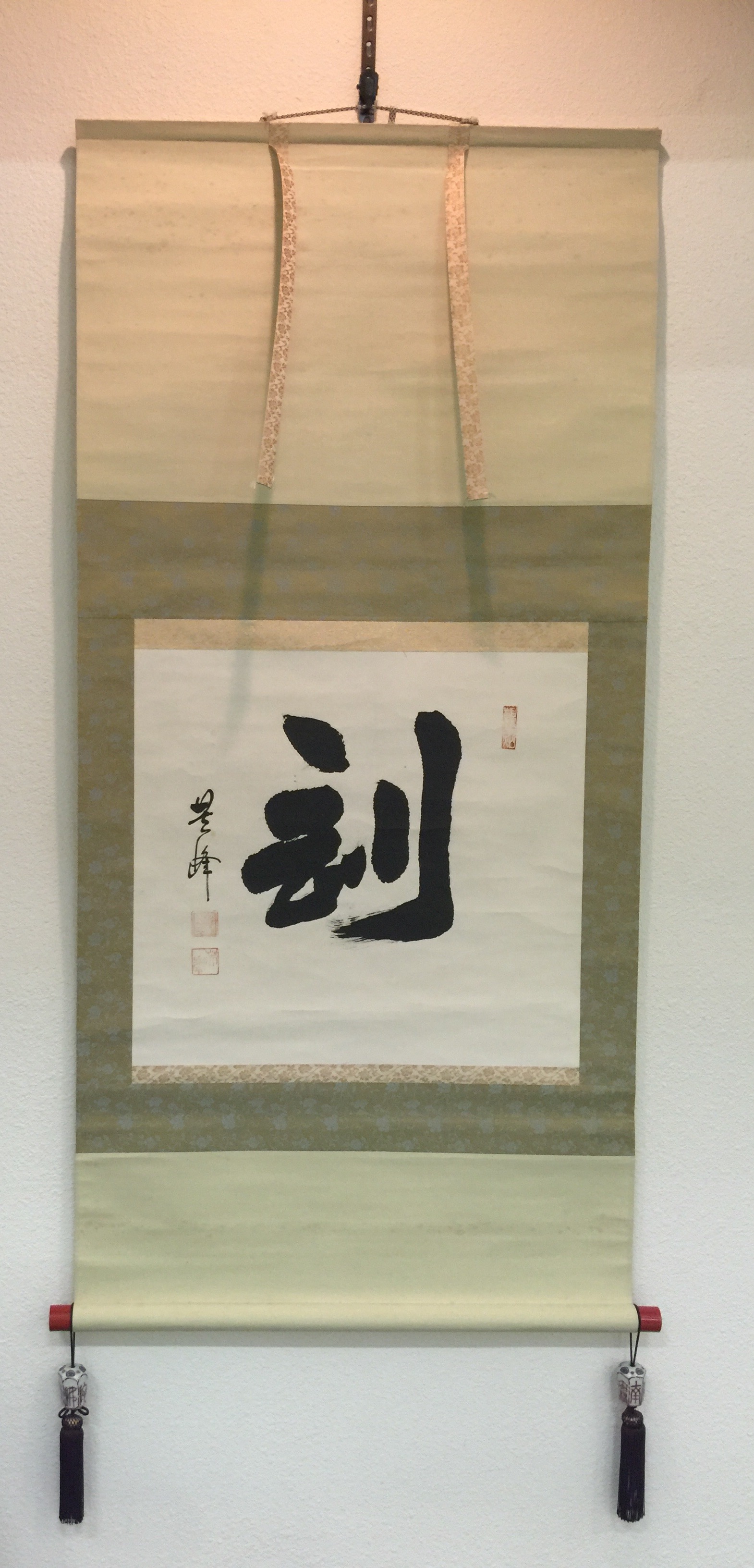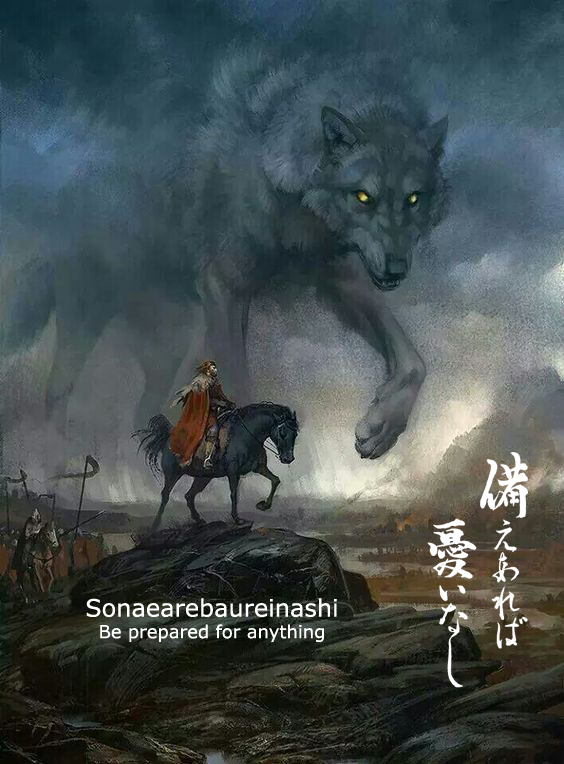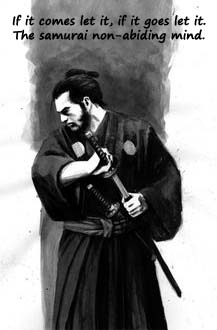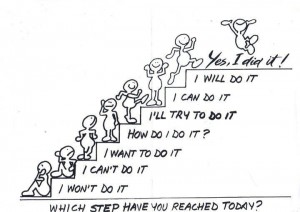 かってからかぶとのおをしめよ.Katte kara kabuto no o wo shime yo.
"After victory, tighten your helmet."
かってからかぶとのおをしめよ.Katte kara kabuto no o wo shime yo.
"After victory, tighten your helmet."
This weekend three students took and passed their various dan rank tests. I am truly proud of how they performed and the preparations that it took to get them there.
As the teacher, testing gives me an opportunity to look at who the students are under pressure, but only time will tell who they really are as human beings. Katte kara kabuto no o wo shime yo is an old Japanese proverb that Furuya Sensei was fond of which translates to "After victory, tighten your helmet."
It is so easy to rest on one's laurels especially after a victory. In the martial arts, the greatest enemy is complacency.
There are two types of people born out of testing. Those who think they have arrived and those who realize how little they know. Both of these are the curse of achievement.
It is a curse because shortly thereafter both realize that where they find themselves is really just a flat spot just before the path becomes a bit steeper.
Passing the test pales in comparison to what we do after that and thus the caution to "tighten one's helmet" is apropos.
Within the Aikido system of ranking, the first rank is shodan and is written with the kanji 初 which means "beginner." Thus, this character alludes to the fact that attaining shodan is just the beginning of one's journey in Aikido. First and second degree are "merit" ranks, third and fourth are technical ranks and 5th and above are teaching ranks. There is so much to learn at each stage no matter where we find ourselves. Each of us is student and we would benefit tremendously if we can remember that.
The battle never ends so wherever we may find ourselves, we must vigilant and thus tighten our chin straps to be ready.
Please keep up the great work and prepare yourselves for the next journey.



